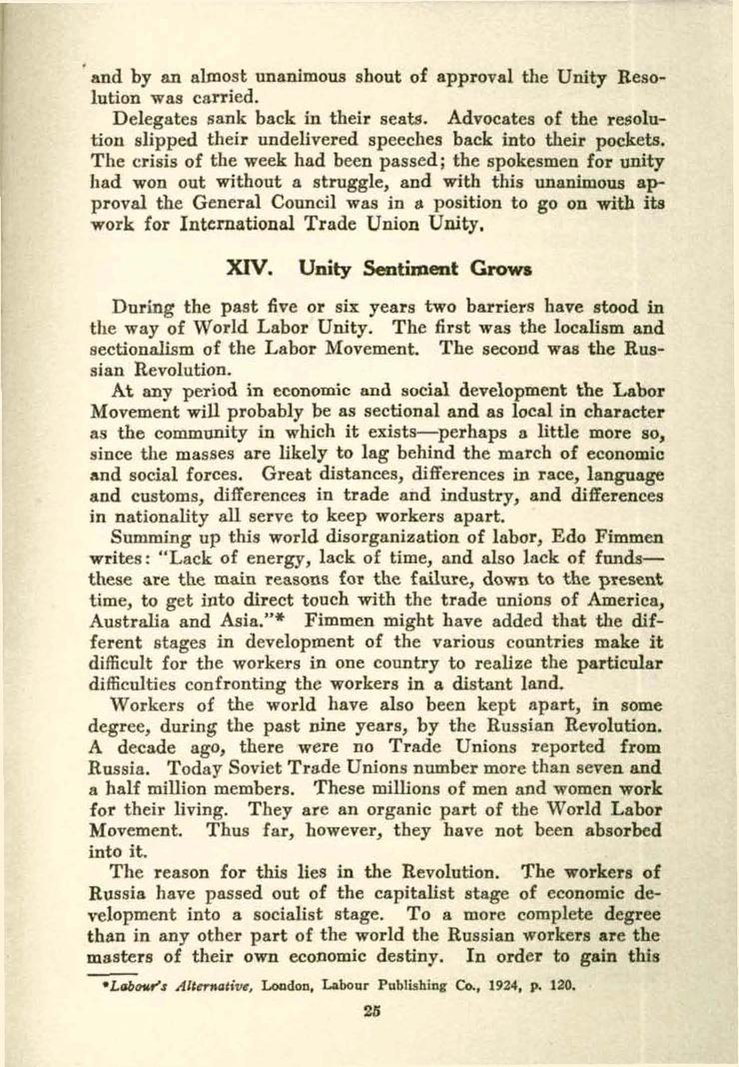and by an almost unanimous shout of approval the Unity Resolution was carried.
Delegates sank back in their seats. Advocates of the resolution slipped their undelivered speeches back into their pockets. The crisis of the week had been passed; the spokesmen for unity had won out without a struggle, and with this unanimous approval the General Council was in a position to go on with its work for International Trade Union Unity.
XIV. Unity Sentiment Grows
During the past five or six years two barriers have stood in the way of World Labor Unity. The first was the localism and sectionalism of the Labor Movement. The second was the Russian Revolution.
At any period in economic and social development the Labor Movement will probably be as sectional and as local in character as the community in which it exists—perhaps a little more so, since the masses are likely to lag behind the march of economic and social forces. Great distances, differences in race, and customs, differences in trade and industry, and differences in nationality all serve to keep workers apart.
Summing up this world disorganization of labor, Edo Fimmen writes: "Lack of energy, lack of time, and also Jack of funds—these are the main reasons for the failure, down to the present time, to get into direct touch with the trade unions of America, Australia and Asia."[1] Fimmen might have added that the different stages in development of the various countries make it difficult for the workers in one country to realize the particular difficulties confronting the workers in a distant land.
Workers of the world have also been kept apart, in some degree, during the past nine years, by the Russian Revolution. A decade ago, there were no Trade Unions reported from Russia. Today Soviet Trade Unions number more than seven and a half million members. These millions of men and women work for their living. They are an organic part of the World Labor Movement. Thus far, however, they have not been absorbed into it.
The reason for this lies in the Revolution. The workers of Russia have passed out of the capitalist stage of economic development into a socialist stage. To a more complete degree than in any other part of the world the Russian workers are the masters of their own economic destiny. In order to gain this
- ↑ Labour's Alternative, London, Labour Publishing Co., 1924, p. 120.
25
